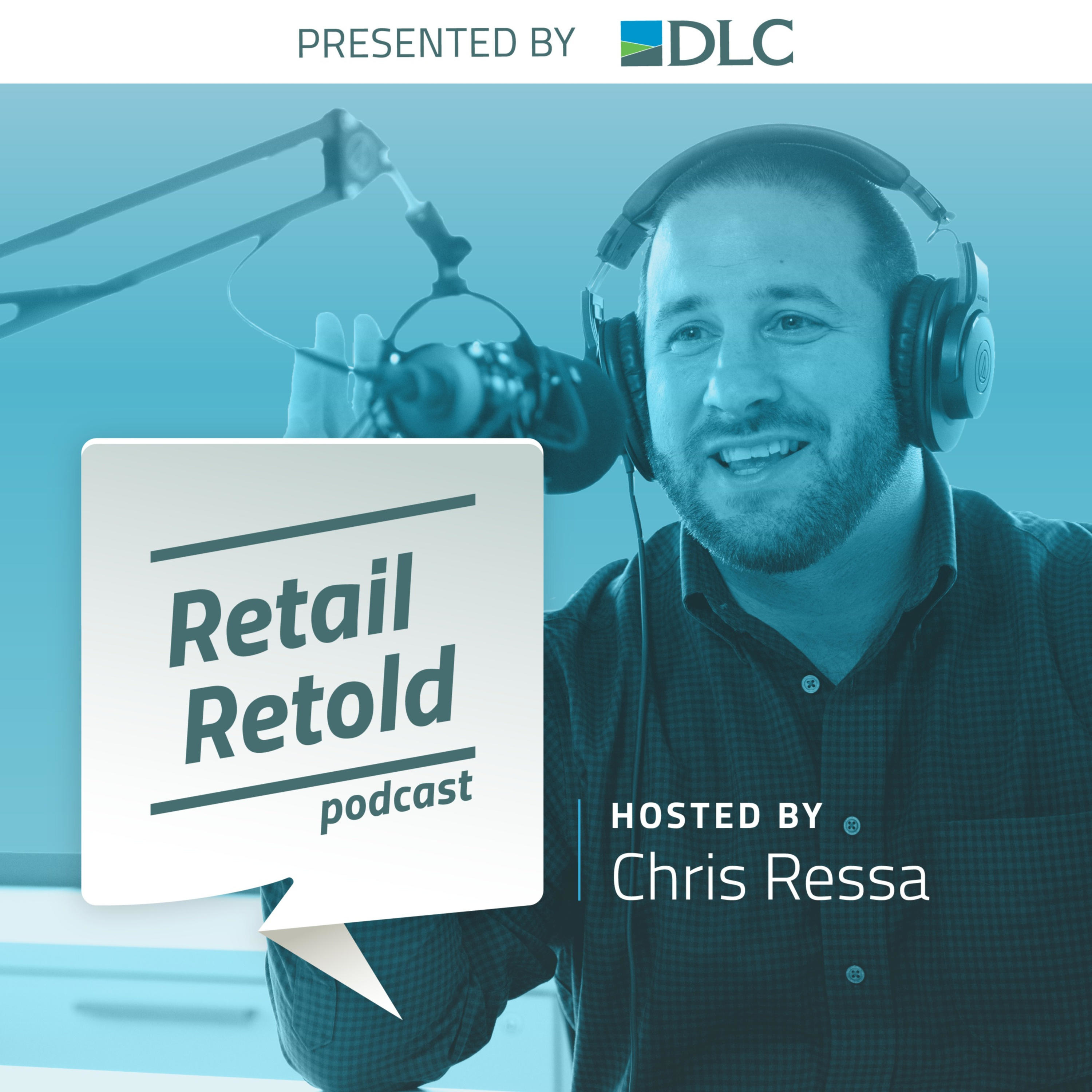
Retail Relates
Welcome to Retail Relates — where commerce gets personal.
Each episode brings you inside the world of global commerce — across retail, consumer services, hospitality, and brand marketing — through powerful human stories and the ever-evolving forces shaping what we buy, why we buy, and how we connect.
From entrepreneurs and icons to industry veterans and rising changemakers, we spotlight those redefining how people lead, create, and connect in a fast-moving world.
Hosted by our roundtable of industry experts, we offer a 360° view of the marketplace through honest conversations, lived experience, and practical insights that resonate.
Let’s get started — this is where the story of modern commerce comes to life.
Retail Relates
A Journey of Bold Choices and Marketing Mastery: A Conversation with Margaret Molloy
What pivotal decisions shape a successful career in marketing? Join us for an enlightening conversation with the esteemed Margaret Molloy, a global CMO and marketing expert, as she shares her fascinating career journey. Margaret discusses the bold choices that led her to success, including her move to the United States to earn an MBA and her recent decision to leave a long-term position in search of new opportunities. She emphasizes the importance of stepping out of her comfort zone and the invaluable role mentors have played in her life, likening them to an advisory board that provides diverse perspectives and support.
Discover how marketing can drive sustainability through powerful storytelling and effective communication. Margaret explains the synergy between brand marketing and performance marketing, highlighting how a strong brand ensures discoverability when consumers are ready to purchase. We also delve into the evolving skill set required of marketers today, from mastering new technological tools to developing essential soft skills like perceptive listening and building cohesive teams. This conversation underscores the importance of both strategic and tactical growth in the ever-changing marketing landscape.
Margaret also shares lessons learned from humility and innovation, recounting a personal anecdote about the refreshing perspective gained from a more startup-oriented mindset. We explore her passion project, #WearingIrish, which showcases Irish fashion designers and taught her valuable lessons about partnerships and creativity. The episode concludes with rapid-fire questions that reveal Margaret's personal preferences and early entrepreneurial experiences, offering a well-rounded and inspiring narrative that intertwines personal heritage with professional passion. Don’t miss this insightful episode filled with practical advice and inspiration for leaders and marketers alike.
TO PURCHASE HER SON EMMET'S BOOK ON "DREW DISCOVERS DIABETES" - YOU CAN FIND IT AT: https://a.co/d/iLPn8HT
HE IS EAGER TO GET IT TO AS MANY FAMILIES, EDUCATORS, AND NURSES AS POSSIBLE.
Margaret Molloy Biography:
Margaret Molloy has carved a notable brand management and marketing career, prominently serving as the Global CMO for Siegel+Gale for over a decade. Under her leadership, the branding agency flourished as she hosted hundreds of CMOs and thousands of guests worldwide at various industry conferences and private events. Margaret also shares her insights and the experiences of other marketing leaders on her podcast, "How CMOs Commit." An esteemed LinkedIn Top Voice and The Drum B2B Marketer of the Year, she is also recognized as a Fellow of the Marketing Society. Educated at Harvard Business School and the University of Ulster, with studies at La Universidad de Valladolid, Spain, Margaret’s academic background is as diverse as her professional experience. She balances her high-profile career in Manhattan with being a mom to two teenage boys. A native of Ireland, Margaret's international perspective and expertise make her a sought-after advisor and speaker in the global marketing community.
https://www.linkedin.com/in/margaretmolloy/
I'm so excited to be here with Rich and Gautham, Rich, Gautham. How are you guys feeling today?
Gautham:Super pumped to be here. Thank you, Paula. Look forward to this conversation.
Rich:Nothing like talking about retail with you guys to get the blood flowing right.
Paula:For me, it's nothing like being relatable with you guys.
Rich:Oh look how you worked that in. That is awesome.
Paula:So I'm excited about this one. Margaret Malloy just a fantastic woman, linkedin top voices, brand and consumer strategist powerhouse of a woman which I love.
Rich:Do you know how sometimes you have mentors that you just you follow, you learn from, but you've never kind of officially designated that relationship. I was at the CMO club and saw her speak on branding, Absolutely. I mean. I probably took about five pages of notes she's one of. She's a branding expert and I love learning from her.
Gautham:Yeah, I'm excited for this as a marketing professor, but I did snoop on her LinkedIn profile and the first thing right, marketing is in my DNA is one of her first statements that she says there, so I look forward to asking her a couple of questions on the state of marketing and as an immigrant. It's really good to see another immigrant on the show and she states that as an unexpected statement from a farmer's daughter and an immigrant, so I'm curious to see where she starts and how she got to where she is.
Paula:So shall we get into it? I am excited, so let's just dive in. Margaret Molloy has carved a notable career in brand management and marketing, most prominently serving as the global CMO for Siegel and Gale for over a decade. Under her leadership, the branding agency flourished as she hosted hundreds of CMOs and thousands of guests worldwide at various industry conferences and private events. Margaret also shares her insights and the experiences of other marketing leaders on her podcast called how CMOs Commit, an esteemed LinkedIn top voice and the Drum B2B Marketer of the Year. She is also recognized as a Fellow of the Marketing Society. Educated at Harvard Business School and the University of Ulster, with studies at La Universidad de Balotoli, spain, margaret's academic background is as diverse as her professional experience. She balances her high-profile career in Manhattan with being a mom to two teenage boys. First of all, hats off to her. A native of Ireland, margaret's international perspective and expertise makes her a sought-after advisor and speaker in the global marketing community. Please join us in welcoming Margaret Molloy.
Margaret:My pleasure. It's an honor. Thank you for inviting me, Paula.
Rich:Our audience is going to have access to your background. You've got a very, very impressive bio and list of credentials. I want to start a little bit differently. If you think back over the course of your career and even life, are there three decisions that you've made or experiences that you have, or three pivotal moments that you think have led you to where you are today?
Margaret:So many Rich. And thank you for the question Reflecting real time. So many Rich and thank you for the question Reflecting real time. I believe the first one was my decision to go to college. I all the benefits that accrue to an individual who has the privilege of getting a higher education, so that was pivotal. Number one, number two I'll stay on the education track. Number two was the decision to get my MBA. So I had been in the United States at that time for about five or six years and I had the insight that getting an MBA, from a credential standpoint, would elevate my knowledge, would also elevate my network and to some degree, coming from a modest school in Ireland, I felt the need for that American credential. So that was pivotal, if you will, in giving me that stamp of approval that is so relevant, particularly for an immigrant carving out a career in the United States. And the third decision, the outcome of which is still to be determined, was the decision this spring to leave my job and explore new opportunities.
Rich:So I've got to ask the decision to leave and to explore new opportunities nerve wracking, scary, exhilarating.
Margaret:All of the above, Rich, and I think we'll put a pin on it and come back to me and I'll have better analysis of that. But ultimately it came from an almost visceral sense that I had something else in me and I needed to leave my full-time commitment to explore that. And I was very privileged to work with and for wonderful people, wonderful colleagues. But my sense was I needed to get out of that comfort zone, much like I had done in the past as an immigrant, much like going back for higher education. I needed to force that education upon myself and I'm optimistic. But yes, it's nerve wracking, it's taking an unfamiliar path which for everyone, will relate to. Doing something that's unfamiliar can be challenging and hopefully rewarding.
Rich:So let me take you back to Ireland. Before you made the decision to go to college, is this the path you thought you would take, or did you have something completely different in mind?
Margaret:In terms of marketing and professional services. Yes, I think that is the path. It aligns well with my skill set and it sort of eliminates the need for me to develop skills in gap areas. For example, I am very poor at all things medical, all things. Clinical. No-transcript, more intuitive, but honestly I'm not surprised. It feels right.
Rich:You mentioned role models. You've been a role model and a mentor. I would consider you a role model. You've had role models and mentors throughout your career. Is there one in particular that you think of kind of quick recall and what advice or what guidance that person gave you?
Margaret:So many because I think of role models almost like an advisory board, and I consider you one of mine too Rich Professionals with different areas of expertise, different lived experiences that I can benefit from. I often say I collect people, but not like trophies although I do display them on LinkedIn from time to time but more from a place of pride and deep affection for the people I surround myself with. In terms of answering your question with an individual, I'll reference my first grade teacher, mrs Sheehan. Mrs Sheehan was a very worldly sophisticated, educated woman, very poised, and she was a role model for me and a mentor, not in the kind of sort of traditional sense of that, but more by observation. She gave me something to aspire to and she also, like so many good educators, saw some talent and did everything she could to build my academic ability at that age, but also fostering me a love of public speaking. She coached me outside of school in recitations and that skill set has helped me as a marketer and a convener of people and speaker. So perhaps a crazy choice, but a first grade teacher is probably my first formal mentor.
Margaret:In some ways, consumer behavior has changed dramatically over the course of my multi-decade career now, but in other ways it stayed constant. So the ways that have changed have been well-documented. Channels are more variable. There is more product in every category than any of us needs, more clutter, so the burden on brands is to be more distinctive, to rise above that clutter. Consumer behavior is probably also scaled in different ways in terms of sameness and difference.
Margaret:I believe since the beginning of time, consumer behavior is and has always been influenced by community. You ask your neighbor for referrals. Well, today our neighbor isn't geographically bound because of the channels that are at our disposal, but that instinct of seeking input from others. I think that's actually stayed the same. So the behaviors that are evolved, seeking input from others, the notion of social proof very relevant in retail. Let's take apparel as an example. Wearing a particular garment is more than just covering our bodies. In many cases the purpose that serves is to identify ourselves as part of a certain society or having a particular taste. So this idea of social proof, that's been around for the longest time. What has changed aren't those instinctual things seeking inputs from others, social proof, a sense of pride in what we purchase, a sense of desire to consume and acquire. What has changed is the scale and the pace at which we humans do those behaviors.
Rich:Do you are there? Is there a retailer or a brand or brands out there that you think do it really well?
Margaret:I'll point to two in very different categories. The first I'll point to is sticking with the apparel example Burberry. Burberry is a really interesting example. It's a heritage brand that gosh, perhaps more than a decade ago, struggled a little because their product had become almost too mass and too popularized and a certain society was wearing the print and their behavior wasn't entirely socially acceptable and that compromised that brand and they brought in a new creative director, christopher Bailey. He revisited the product, so the product changed. They scaled down the famous plaid print. They also introduced significant innovation in their supply chain and indeed I think they were one of the first to sell directly from the runway. So a brand that's characterized by heritage, renewal, going through obstacles, not a perfect linear journey, but also continuous innovation.
Margaret:A second one, also in retail, but a very different category and a very different customer base, is CVS, the corner drugstore, if you will. And I appreciate what CVS is doing because almost a decade ago now they came out with a brand purpose which is helping people on a path to better health. Now they decided that brand purpose was incongruent with selling tobaccos in the store, so they removed tobacco at many billions of dollars lost to the bottom line, at least initially. What I appreciate about what they're doing is they put their actions behind the purpose. Fast forward a number of years.
Margaret:They realized, particularly for women, there was a lot of pressure on young women to look a certain way and the realization is a lot of consumer packaging and beauty is retouched images. So they came up with a beauty mark. Again. In that case it wasn't tobacco-reduced illnesses that was compromising their customer, but mental health. And now there is a beauty mark. So you will know if you're purchasing a beauty product at CVS, if indeed that image has been retouched. And they continue to innovate around their purpose. Most interestingly, I think from a commercial standpoint because we're all thinking as business people here that sticking with their purpose, putting their actions behind them, arguably set them up for the acquisition of Aetna and now, of course, cvs. Aetna is a behemoth in healthcare more broadly, not just in the retail. So I admire Burberry for its ability to transform and innovate. I admire CVS as a retailer for its ability to articulate a purpose and bring it to life and commercialize it to great success.
Rich:Look back over the course of your career. Is there a single innovation that you think has had the greatest impact on consumer behavior? And then I'll give you a part two. If you look out five or 10 years, what innovation do you think is going to have the most dramatic impact on retail and on consumer behavior?
Margaret:I think the innovation that has had the most impact, certainly in my career, in my lifetime, has been mobile, for all the reasons that you as retail experts know so well the ability to research, product, the ability to price, compare in store, the ability to, anytime, anywhere, consummate a retail transaction. The ability to do all those things I talked about in the beginning, whether it is seeking input from peers or others you value, or influencers, as we may say. Real time when making a purchase, to the ability for that social proof to put your picture up on Instagram. So mobile certainly is powerful from an innovation. That's recent history, rich, I know you are a historian, so you'll go further back in your own analysis In terms of shining up the crystal ball and into the future.
Margaret:I think it's probably surrounding community and how we might think of our use of product and service in a shared economy type context. We're seeing early thinking around this. Certainly, by definition, uber is that right. How many of us don't own a car? I do not own a car but I travel via Uber. So many other models Airbnb in the accommodation space. I think looking at and you and I are both parents, rich, looking at our children's behavior that's a lot more communal and how they share things. My sons, for example, not only share clothing among themselves but we have a shared closet that the children come and their friends and schoolmates. Extrapolating that idea of community, with all the benefits around sustainability that accrue to that, I think of interesting implications across different product and service categories as they relate to retail, and some I cannot envisage today. But I can anticipate that genetic desire that we all have to form community coming to life in different ways in retail.
Gautham:Margaret, can I jump in here? You said something that's close to my heart, which is sustainability, and, as you are a marketer through and through, I'm a marketing professor. What is the role of marketing in sustainability? You know, oftentimes, especially in today's media, you get a lot of negative press around greenwashing and so forth, but at the same time, marketers do have the important role of nudging consumers to behave sustainably. Talking about sustainable products, where do you see marketing's role evolve when it comes to society and sustainability in general?
Margaret:I believe marketing and marketers have a very important role to play in sustainability. Just a couple of facets of that. Number one is articulating and communicating an organization's point of view as it relates to sustainability and making that message relatable and understood by all stakeholders. So it's that classic. There's the communications component of it. There is also the persuasion component.
Margaret:As marketers, one of our most powerful capacities, when we do it well, is we persuade people to act, sometimes act differently, and that in turn, if you nest these ideas, requires storytelling, telling people why they should, and persuading people at a level that is not about the commercial agenda of the company but rather what's in it for them. So there's the persuasion component helping people to be inspired to use products that are more sustainable. And I'll offer just a third example Marketers can employ their skillset to partner with product development within their own organizations to capture consumer insights and help colleagues in the product area in new product development, in the creation from the get-go. So we've talked about the communications, we've talked about the storytelling, but getting the insight and helping product development from scratch to build products that are indeed more sustainable.
Gautham:That's a wonderful answer. Thank you very much, appreciate it. Can I ask you one more question? Lately we've been having these discussions around brand marketing versus performance marketing right, and how they both interplay with each other and so forth. Now you have an illustrious career as a marketer, you work with agencies and so forth. How do you see these? I personally believe they interplay right. They play at different levels of the customer journey and they kind of work together. What's your perspective on how these play together, the relative emphasis on both that a company should have?
Margaret:I share your thesis that they are complementary and I think a lot of the common conversation right now is creating a false dichotomy. That's not particularly helpful to marketers. It may be helpful to agencies or sellers of media based on their agendas. A very pragmatic level Research suggests that in many different categories your addressable market only 90% or more than 90% of people are not in the market for your product or service today. They're not buying a new coat or they're not buying a new software system or retail system for your store. So what that essentially means is a lot of the performance marketing, the click, if you will, related marketing.
Margaret:There's some wastage with that. Want your retail system, if you're B2B, or your coat, if you're B2C, to be purchased by all of your addressable market. You need to build a brand such that when that consumer or B2B buyer is in market because we've said 90% of the people are not in market today when that consumer is in market to buy your product, that you are discoverable. And that means the brand has to work hard for you to create familiarity, to create the right perceptions, to create, from a brain perspective, memory structures such that you come to mind. So we play with Burberry, for example, depending on your budget, but for a certain target market. Burberry wants to come to mind when someone wants to buy that coat. And that's not just performance marketing, that's having built a brand with certain associations that render it discoverable and top of mind. And then the performance market comes into play in all the kind of more obvious examples of facilitating that purchase transaction.
Margaret:But it's that complementarity that's important and I fear our short-term orientation and our insatiable quest for immediate gratification lends us to like performance marketing. It's so measurable, we can measure clicks, it's so near term, it's so gratifying. The risk is we over index on that and we forget the big picture which is around brand building which arguably is a bit squishier. Although there are many frameworks for measuring, it's much more debatable. I believe for my career you need both and if I had to choose I would put the emphasis on the brand building because I think a brand essentially the promise you're making to your market that lends itself to virality. Back to my thesis in the beginning that we're social in the end of the day and we buy partly on recommendation, partly on social proof for other factors, particularly in retail.
Rich:So, as you go through that, let me bring it back to you and your career. How have you had to evolve your skill set over the course of your career, as the consumer has evolved?
Margaret:In many ways. There are tactical learnings that I've had to develop and you can almost plot those over my 20 plus years of a career along the axis of the evolution of technology. So I spent a number of years working with Siebel Systems, the manufacturer of customer relationship management software, or CRM. They essentially created that CRM category, so learning about CRM. Then I worked with a digital agency and learned personally the social media tools from Twitter to LinkedIn and beyond, and now I find myself dipping into AI and learning those technologies. So there are tactics, if you will, channels, tools that I've had to master, tools that I've had to master both personally and extended to my teams. But there are other qualities that I think are actually more important, more meta qualities that I've had to learn. I've had to learn to be a much better, more perceptive listener to my consumers, and that transcends tools to asking smarter, better questions, unlearning some assumptions that I may have held dear and challenging my assumptions. I've also had to learn, as I've evolved in my career as a marketer, how to build teams that extend and scale my capabilities and complement my capabilities. So those are soft skills, funnily enough, and I think those meta skills that I've had to learn and continue to need to learn are so very important as a complement to the tactical skills of learning how to be an influencer on Twitter, where I was a top CMO on Twitter when that was a dominant platform, to now holding that responsibility on LinkedIn and now hopefully extending that into AI. So it's that balance of the mindset with the tactic.
Margaret:There are many and I think we're speaking somewhat today in the context of education and I think very highly of education.
Margaret:It's been my pathway, but I think there are some gaps.
Margaret:But I think there are some gaps and I think we overrate loosely defined intelligence and IQ and we underrate the ability to extend our minds, and what I mean by that is people's capacity to offload cognitive tasks to physical environments, to use gesture in communication, for example, to engage with people and offload tasks to team members, to be able to borrow other people's minds, to be able to use environments to enhance our cognitive capacity as a marketer. When I create events, I think about the physical environment, rearranging the furniture, if you will. I think about bringing physical artifacts into a room to help people's understanding of abstract concepts. So I think we are very narrow narrow in how we evaluate people and we rely too much on classic standardized testing and IQ and we really need to expand the aperture of the skills that we ascribe value to as a society and as leaders, as educators and as managers, and really become more sophisticated in that assessment. So the short answer is the skill we undervalue is extending our minds a failure that you had and what you learned from it.
Rich:But I'm going to pivot a little to that, because you and I both share having a um, a child in college, um, and you have a son in high school. What's the single greatest thing you've learned from your kids?
Margaret:So much learning, I think. Humility, because I think being open to their feedback and teaching me new things. I'll give you a quick example my son last night. He's working on a project. He recently published a book. He is a type one diabetic and he published a book on his disease state children's book and he is tremendously committed to getting that book into libraries and public schools because he wants other families to know the signs of that disease. My family did not know those signs and he almost passed.
Margaret:We were very late at diagnosing his condition and the story that I'm sharing I'm sharing the story because we were brainstorming and he was asking my input on how to achieve his vision and I talked about who did I know because I'm very relational and very network oriented and I threw my hands up in the air and said, oh my gosh, I know no one in that universe.
Margaret:And he said mom, you have become so corrupted by corporate that you feel you need to know people. We can just do it. I can just buy the books, send the books, mail the envelopes, stuff the envelopes. And I thought, oh my gosh, that's very humbling. But also he's right, I have become quite corporate and he is much more startup mode. So you know he's scrappy and it was a real wake up call for me because I had always prided myself in being scrappy, being immigrant, being kind of a hustler, and he just brought that little blind spot to my attention that I'd become a little corporate. So, humility, if you're willing, you have to be willing to have an open mind, though. Rich, to learn from our kids, we have to be humble and recognize they can teach us, and the order of operations isn't always us teaching.
Rich:A lot of our target audience is going to be those that are coming up after us, and I want to take that clip and share it with my leadership team and with other senior leaders, because it's interesting when you get into these generational arguments. I think that's a masterclass answer on why every future generation has something great to contribute if we take the time to listen and absorb. I have a couple more questions that I want to get to rapid fire. Have you had a passion project in the past or do you have one currently that you've been excited about, and how has that helped you in both your personal life and your career?
Margaret:Well, thank you for the question. I am the founder of Hashtag Wearing Irish. I am the founder of Hashtag Wearing Irish and that is a project that aspires to tell the untold story of Irish designers. The insight behind that the short version is almost a decade ago, I attended a lot of conferences, met wonderful people like Rich, and at the time, I was wearing fashions designed by Irish creators and I would get the occasional compliment, and the insight was that Ireland is brimming with deeply talented fashion designers, but nobody can name an Irish designer. So I personally set about creating an Instagram channel with that hashtag, personally wearing the products and showcasing them. But also I hosted a significant event in 2019 in New York City where, with the support of very generous sponsors and advisors like Rich, brought 10 fashion designers who were the winners of a competition to the United States to show their wares, meet American consumers and do real-time intelligence gathering around the market, and it was a wonderful experience.
Margaret:I took a lot of pride in doing that. I learned so much. It was very much a startup-y effort on my part. I learned about partnerships, I learned what I didn't know and I also learned about difference. These creators have very different mental models to mine. They're wired differently, challenging but also very constructive, in the sense that I'm quite linear in my thinking and very organized, and my values are very clearly commercial in that context, whereas these professionals they're creatives. So very different mindset. How that's helped me? Myriad ways, but one of the most obvious is when I worked at a creative agency most recently, I had a much deeper appreciation for my creative colleagues. Different mental models and working with designers taught me to appreciate that difference and I've learned so much from it.
Rich:You know, I have to ask who are you wearing?
Margaret:Well, thank you. Oh my gosh, I am wearing Lennon Courtney, wonderful Irish designer. I invite you to check out their collection. It's available at Kilkenny Design and fun items. Many different options at different price points.
Rich:Outstanding. All right, I'm going to head into the rapid round. So three or four questions. I'm going to start with a slight curve, but a comfort food. End of a tough day. What is that comfort food that you hope is waiting for you at the end of it?
Margaret:Can I be highly expected and say I'm an Irish girl, so I'm going to pick potatoes.
Rich:I will tell you that mashed potatoes is on the list and we had a long conversation about that last night. So you absolutely can. If you could automate one part of your life, what would it be?
Margaret:Everything administrative Administration, not my strengths, so I'm welcoming AI.
Rich:Do you have a theme song?
Margaret:I like ABBA, so was it ABBA that had Take a Chance on Me.
Rich:Oh, absolutely Okay. And the follow-up was going to be which song?
Margaret:Yeah, take a Chance on Me, because I think that I love the rhythm of it, but also I like the spirit of that. People have taken chances on me and I love when I have the opportunity to do the same for other people.
Rich:Oh, I really should just end it there, but I had one more that I was going to ask what's the most unusual item that you've bought or sold?
Margaret:You know, growing up on a farm, there are lots of unusual items that people buy or sell. So when I was a child we raised chickens so I was responsible for cleaning and selling the eggs.
Rich:I like that. So you were an entrepreneur from a very young age.
Margaret:I guess. So, although I don't give myself credit for that, and in fact, I will have to have my son listen to this episode and tell him that I was entrepreneurial. I just have to reignite that insight that you just shared, rich.
Rich:Absolutely amazing. Really appreciate the time and tons of lessons. I know we probably have a long sheet of takeaways from this, margaret. Wonderful to have you share your experiences and your knowledge and wisdom with those that are up and coming and, quite frankly, anybody can take a lesson away from this. So thank you very much.
Margaret:My pleasure, truly an honor. You, and best of luck with the new season.
Gautham:Well, wow, that was such a powerful conversation. Look, I was fascinated from the story of how she got to the US all the way to how marketing is changing, and I must say what stood out to me we never had those questions about brand performance, brand versus performance or sustainable marketing in any of our prepared questions for her. Yet the way she answered it, how thoughtfully she segmented the questions into different parts and came up with eloquent answers to me, and she was willing to take a stance on these hard questions that are current today in marketing. I think they are a great lesson for our students on how to speak effectively and efficiently while communicating on very, very difficult issues, and I must say I learned so much from the conversation, just as a communicator and as a marketer.
Rich:Yeah, gautam, I know what you mean. You know I was excited for you guys to meet her. I had that kind of anticipation because I've heard her speak in the past and I've had the fortune of having several conversations with her, and as much as we're gearing this primarily towards those who are starting off or at the early stages of retail, or students, I really think she's a natural teacher.
Paula:I agree there is something for everyone in this episode. I feel like that will be a tagline of ours. Oh, she was just great and just seeing just a wonderful woman talking about her children, you know humbling her. And I found her comment about CVS to be really on point that I hadn't thought about. When I think CVS, I think the long receipts. She has a point right their brand purpose of helping people.
Rich:That was probably my best takeaway from this 30-minute talk with her at the same time, learn from them, and you can tell that she not only has a great admiration for her kids, but just for that generation in total and what she can learn from them, and I think that is something that we have to absolutely embrace.
Gautham:She is an immigrant. Right, when you come across as an immigrant, you are an entrepreneur in many which ways, and she talks about how her child or children made the comment that, oh, you've been taken over by Incorporate and going back to the entrepreneurial roots. I found that fascinating, and the fact that she was representing Irish clothing was also entrepreneurial. Sometimes you forget where you come from and you have these unique movements which get you in touch with your roots in some ways, and I thought that was a very nice story that wove through the whole conversation yeah, gotham, I would agree, and you know I was thinking back to when she first released wearing irish, and it was a.
Rich:It was a passion project for her. She was going into ground. That was a little bit more unfamiliar and I'd known her for a couple of years. I had run into her at industry events that, attended her presentations, taking copious notes, but at that moment it was a relatable moment for us because I had been in retail for many years and in the apparel industry for a large segment of it, and so we were able to connect on that and we've remained connected ever since, which is, paul, as you pointed out, the whole reason that we're doing this, and so I'm excited that you guys enjoyed it. I know that our listeners will enjoy this and getting to know her and the guests that you guys have invited into the show as we continue to go down this path together. Yeah.

Gautham Vadakkepatt
Co-host
Guy Courtin
Co-hostJaime Lynn Curley
Co-hostJudy Sejiny
Co-host
Paula Gean
Co-host
Rich Honiball
Co-hostPodcasts we love
Check out these other fine podcasts recommended by us, not an algorithm.
RETHINK RETAIL
RETHINK Retail
The Retail Razor Show
Ricardo Belmar | Top Retail Expert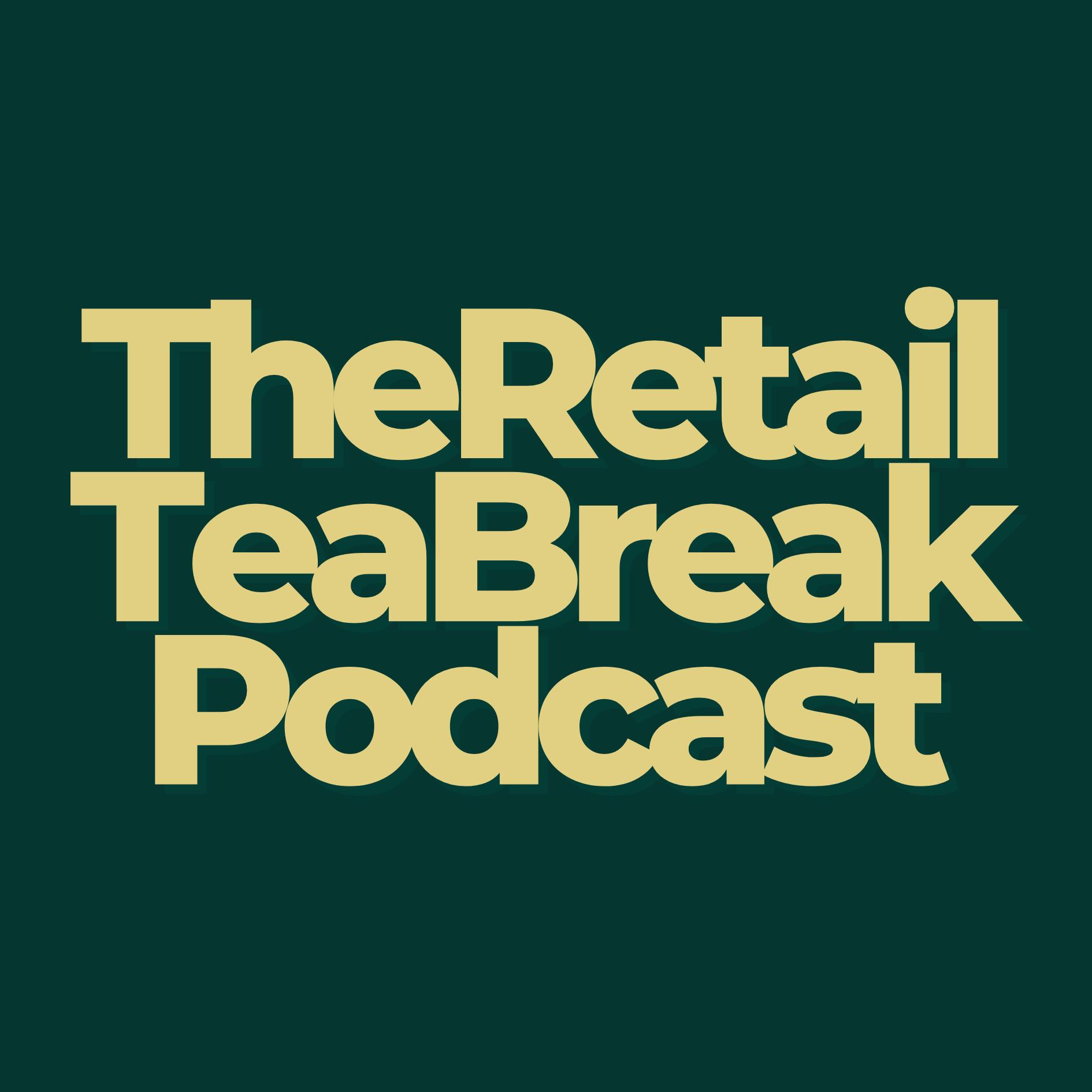
The Retail Tea Break
The Retail Advisor
Retailistic
Deborah Weinswig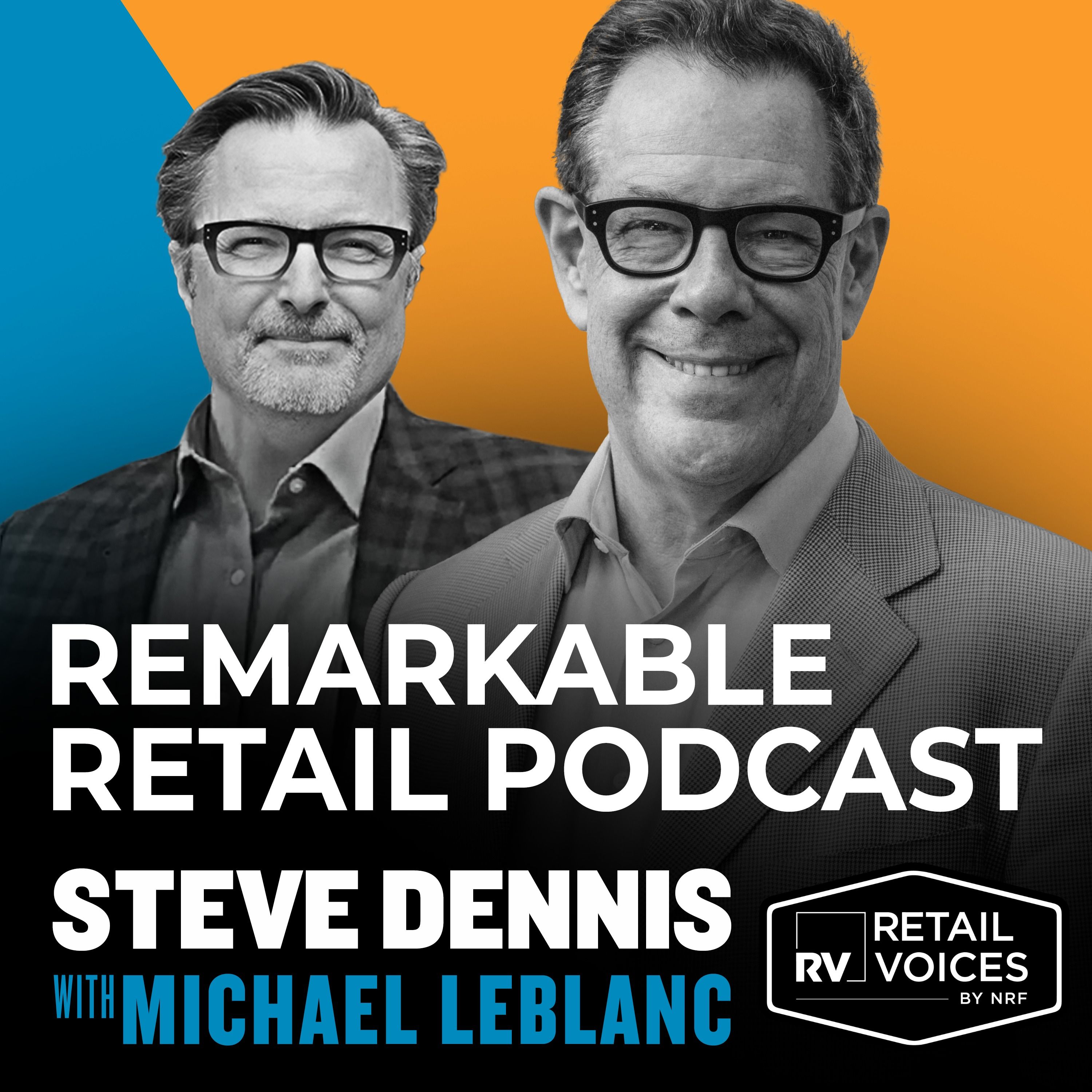
Remarkable Retail Podcast
Michael LeBlanc, Steve Dennis
Retail Unwrapped - from The Robin Report
Shelley E. Kohan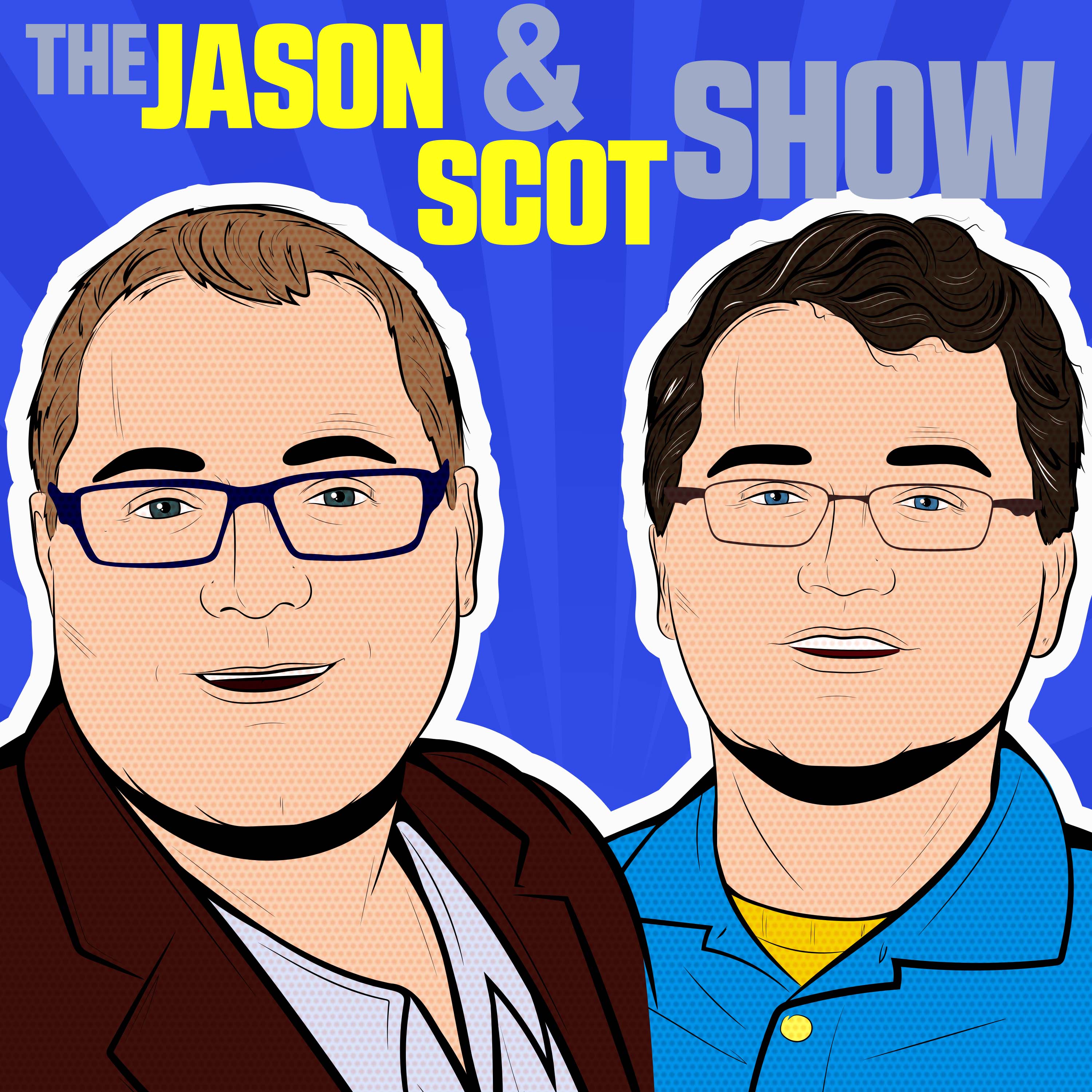
The Jason & Scot Show - E-Commerce And Retail News
Jason "Retailgeek" Goldberg, Publicis & Scot Wingo, Channel Advisor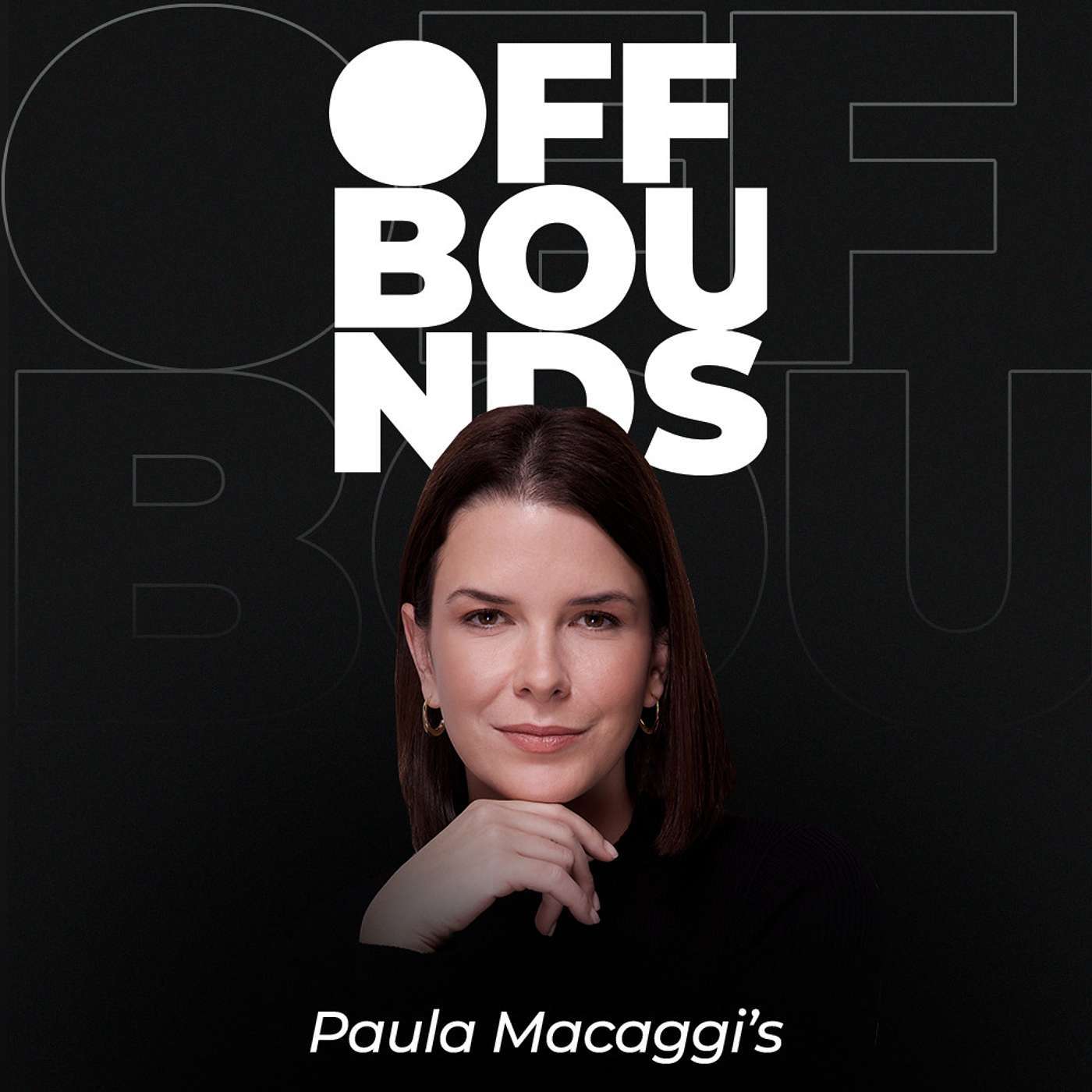
OFFBounds Retail
Paula Macaggi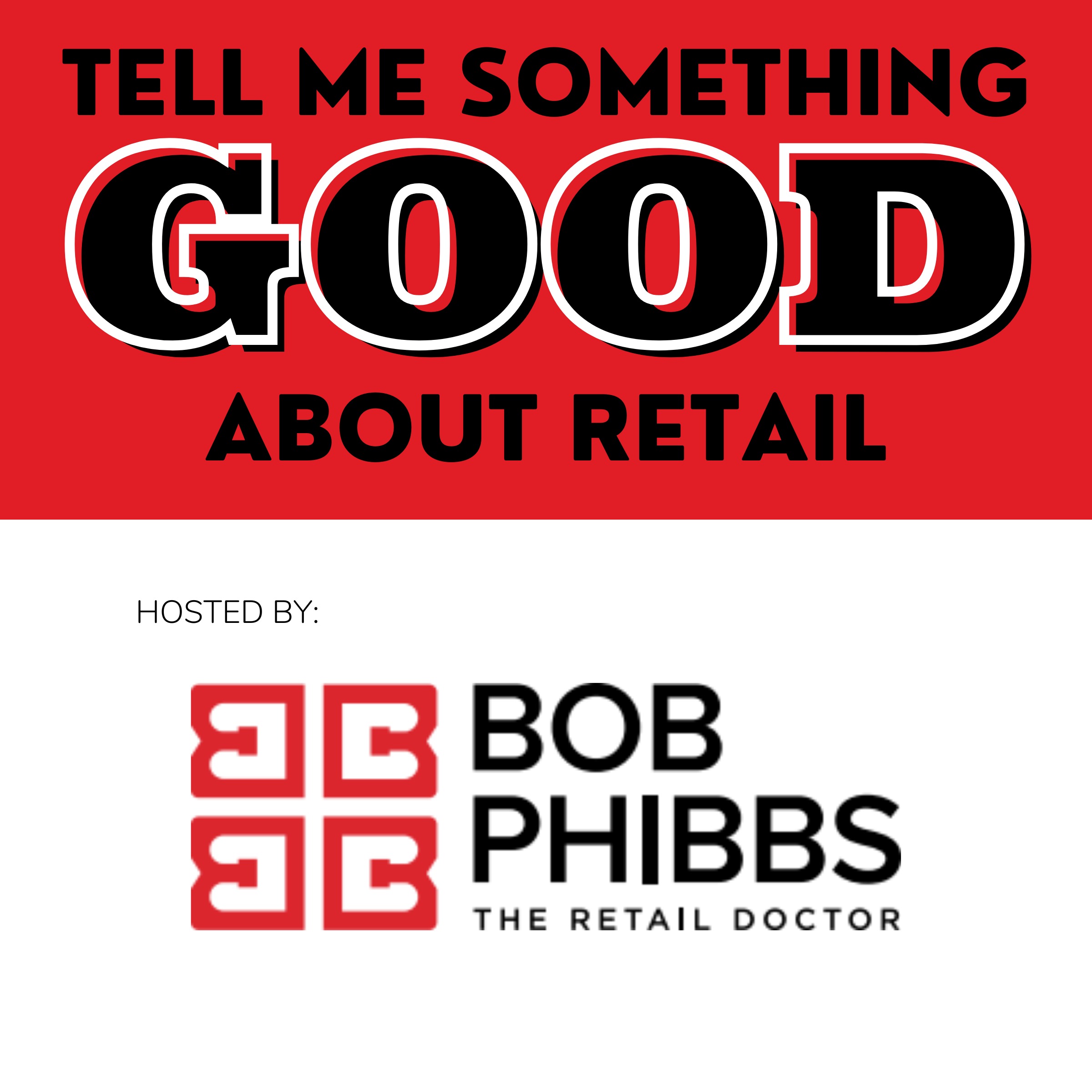
Tell Me Something Good About Retail
Bob Phibbs, The Retail Doc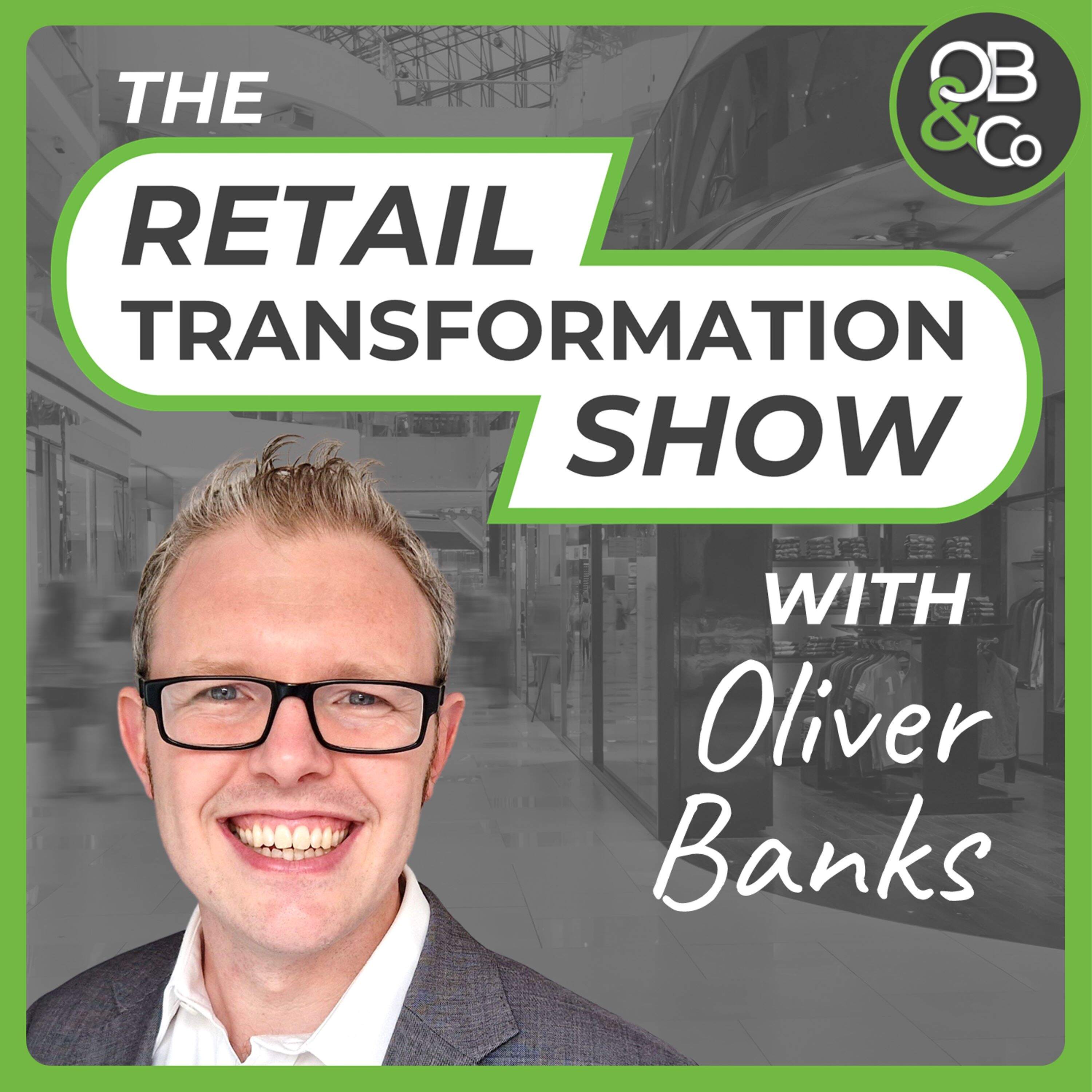
Retail Transformation Show with Oliver Banks
Oliver Banks
The CPG Guys
Peter V.S. Bond & Sri Rajagopalan